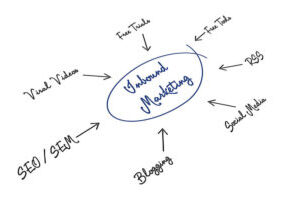Why Is Duplicate Content Bad for SEO?
In today's Digital Marketing Mastery, we discuss why duplicate content is bad for SEO.
Don't we all dream of seeing our webpage ranked top in search engine results? Every business owner or marketing manager works hard to ensure that they have nailed down SEO guidelines to ensure that their site ranks high on SERPs. However, making minor mistakes can make all your efforts go down the drain. A common mistake made by many is creating duplicate content, using the same content on more than one page. This negatively affects SEO rankings and can reduce the flow of organic site traffic.
This article will share valuable information about duplicate content, its effect on SEO, and how you can fix this issue.

What Is Duplicate Content?
Duplicate content refers to blocks of identical or similar content in more than one place on the internet or a particular site.
To explain this better, duplicate content is stacks of copied texts and other visual data that matches with other sites or pages of your site. This could be anything from the same description on your service pages or copied content from your competitor's site.
This content adversely affects your site's performance and ranking on search engines.
There are two types of duplicate content.
1. Internal Duplicate Content
Internal duplicate content refers to duplicate content on the same website.
In other words, the same content is directed towards more than one URL on a site. From a search engine perspective, this could be a severe problem as it would have to choose between these different URLs and rank one of them on SERPs.
2. External Duplicate Content
Also known as cross-domain duplicates, external duplicate content refers to identical or nearly identical content published on more than one website.
Some content is naturally similar and often unavoidable when another article is quoted on a site. However, publishing the exact word-to-word content in two different online locations, such as a product description, can ruin your SEO efforts and your business’ reputation.
Why Is Duplicate Content Bad For SEO?
You might be wondering why duplicate content is bad for SEO. Duplicate content confuses search engines on which webpage to rank as results.
Here's what goes on in the mind of a search engine when it comes to organically ranking content when a search is performed:
- Which version of the site to include or exclude from search engine indices?
- Which of the two similar content sites should rank for a query result?
- Whether to direct the link metrics (trust, authority, anchor text, link equity, etc.) to one page or keep it separated between multiple versions
When Google comes across multiple identical pieces, they call it "appreciably similar" content in more than one online location. As a result, a search engine is about which site should be mentioned in the top searches when a relevant query is made.
Google or other search engines randomly pick a site of their own choice. Therefore, there are high chances of not being ranked in the top search engine results even if you have original content. This can prevent your content from reaching your targeted audience.
What Effect Does Duplicate Content Have On Your Site?
Search engine or Google Duplicate content can affect your site and its reputation, harming SEO ranking. Here are some effects to consider:
- Having duplicate content can result in penalties and potential lawsuits.
- Search engines can disable or ban your website due to copied content This can happen even if your content is original and matches other websites.
- Users will stop relying on the information present on your site and opt out of services if they feel like your content is copied from other sites.
- The inbounds link will point to multiple pieces of content instead of just one. This will dilute equity, hampering the search visibility of a piece of content.
- Negatively affects marketing strategies and efforts.
How Does Duplicate Content Happen?
Duplicate content is a common occurrence, sometimes intentionally or unintentionally. A study revealed that up to 29 percent of web pages have duplicate content. This can be due to two main reasons:
1. Malicious Duplication of Content
This means creating identical content intentionally to increase website traffic by manipulating search engines. Also known as 'search spam,' this form of duplicate content can give rise to severe consequences, such as search engines penalizing websites and individuals. It's crucial to remember that several tools like duplicate content checkers are available for search engines to assess the uniqueness of content and eliminate "spammy" content in the search engine results pages (SERPs).
2. Non-Malicious Duplication of Content
Non-malicious duplication of content can happen for various reasons. Some of these include:
URL Variations
URL variations are a common cause of unintentional content duplication. Sometimes URL parameters, such as click tracking and some analytics code, are similar, resulting in duplicate content. Moreover, the pattern in which these parameters appear adds more to it.
Scraped or copied content
If your site includes product information, there are high chances of duplicate content issues. This is because product details and specifications are usually the same, increasing the chances of being matched with other sites' content across the web.
HTTP vs. HTTPS or WWW vs. non-WWW pages
Having the same content under different URLs like “www.site.com" and "site.com" (with and without the "www" prefix) can give rise to duplicated content. Additionally, you might give rise to duplicate content related issues if search engines can see the exact version of the content on both http:// and https://.
Ways to Fix Duplicate Content
Once you identify duplicate content, you should immediately fix this issue to improve your search engine ranking. Here are some easy ways of doing this:
Canonical URL
This is an effective method to deal with duplicate content. All you have to do is use the rel=canonical attribute. This informs search engines that a specific page must be treated as a copy of another URL. In turn, this means that all links, content metrics, and "ranking power" that the search engines apply to a given page should be credited to another specified URL.
Meta Robots Noindex
This method involves using meta robots which work when the values "noindex, follow" are used. This is commonly known as Meta Noindex,Follow and technically known as content=" noindex,follow". These robot tags can be added to the HTML head of any page that should be excluded from a search engine's index.
In A Nutshell
Duplicate content can ruin your SEO efforts and cause you to lose the potential to rank high on SERPs. Therefore, duplicate content issues should be taken seriously and fixed before search engines remove or penalize your content, despite it being original.
Looking for some help? Epitome Digital Marketing is an exceptional digital agency that can cater to your SEO needs. You can rely on us to fix duplicate content issues through our experienced and competent team of SEO and copywriting experts!
Get Instant Access To Digital Marketing Mastery
Learn the secrets of quickly growing your business and bringing in more leads with our exclusive email list. Subscribers receive monthly emails about:










